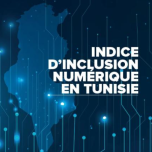
Open Online Course: Euro-Mediterranean Intercultural Trends
A learning journey through the Anna Lindh Report “Intercultural Trends and Social Change in the Euro-Mediterranean region”
ALFinMOTION - Mobility Programme - Seventh Edition
ALF Hands-On: Open Call for Participation! - Second Cycle Round 2
Making research, good practices, learning activities and events on intercultural dialogue in the Euro-Mediterranean accessible to everyone.

In this section you will find publications, events, good practices, learning activities and resource people in relation to youth exchanges and mutual perceptions in the EuroMed region.
A learning journey through the Anna Lindh Report “Intercultural Trends and Social Change in the Euro-Mediterranean region”
A series of Cross-Network activities has been organized by the Anna Lindh Foundation National Networks of Sweden - Centre for capacity building & emp
Dans le cadre du Marathon virtuel de la FAL pour le dialogue dans la région EuroMed, l'UNESCO et la Fondation Anna Lindh organisent une formation sur les compétences interculturelles pour les jeune
EU High-level virtual discussion on the impact of Covid-19 on youth policies and institutions, with EU High Representative/Vice-President Josep Borrell
On July 7th 2020, delegates from the Anna Lindh Foundation’s flagship programme ‘Young Mediterranean Voices’ and from the European Parliament's ‘Young Political Leaders programme’, participated in

1. La stratégie Tunisie Digitale 2021-2025 formalise l’ambition de la Tunisie de devenir un leader dans les technologies des communications numériques. Cette ambition est motivée par une reconnaissance du numérique comme un vecteur de développement social et économique. Les différents...

Parce qu'elle est un des grands défis auxquels doit faire face la nouvelle génération, la lutte contre les changements climatiques constitue un terrain privilégié où les jeunes méditerranéens peuvent faire l'exercice de leur citoyenneté. Grâce au projet Jeunes Citoyens Méditerranéens...

Both Latvia and Israel are dealing with significant percentages of pupils from minority groups. These include Russian-speakers in both countries and Arabic speakers in Israel. Due to historical reasons, these minorities are facing discrimination, social exclusion, lack of a sense...

Les enfants sont les futurs acteurs de la zone euro-méditerranéenne et ils représentent environ 20 à 40 pour cent de la population de la région. Alors que c'est pendant l'enfance que les compétences interculturelles doivent être acquises et répétées, les...

With the aim of improving relations among youth in Euro-Mediterranean region Learning indeed set out to offer young people the possibility to learn about themselves by learning about others. The project targeted especially disadvantaged youth who do not have the...